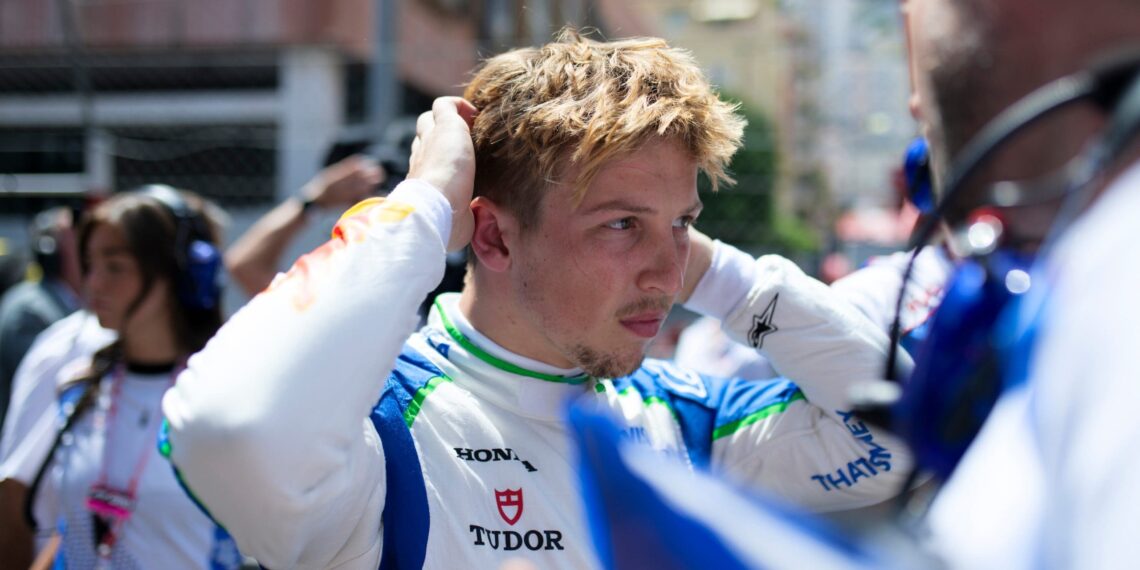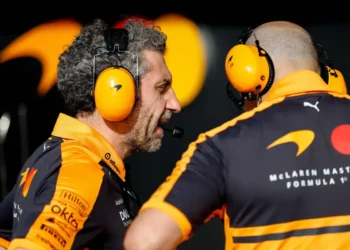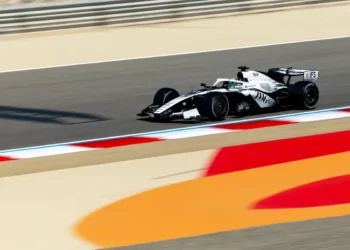Liam Lawson’s Red Bull Rollercoaster: A Shocking Demotion and Unpreparedness Unveiled!
In a dramatic twist of fate, Liam Lawson has pulled back the curtain on his tumultuous stint at Red Bull Racing, revealing the shocking circumstances that led to his swift demotion back to the sister team earlier this year. After being elevated to a coveted seat alongside reigning champion Max Verstappen, Lawson’s dream quickly turned into a nightmare, raising questions about the team’s handling of young talent.
The New Zealand driver was initially thrust into the spotlight following Sergio Perez’s exit at the conclusion of the 2024 season. However, what seemed like a golden opportunity rapidly descended into chaos. After just two disheartening races, Lawson found himself booted back to the Racing Bulls team, a clear indication that the pressure cooker of Formula 1 was too much too soon.
In an exclusive interview with RacingNews365, Lawson candidly admitted that he felt underprepared for the high-stakes environment of Red Bull. “If you look at how other teams have approached bringing a young driver in… we didn’t do any of that,” he lamented. His experience starkly contrasted with that of others, like Kimi Antonelli, who benefited from extensive testing before entering the fray. Instead, Lawson faced the daunting challenge of navigating two unfamiliar tracks in rapid succession—one of which was a sprint weekend—without the necessary groundwork.
The pitfalls began during pre-season testing in Bahrain, where reliability issues plagued the team. Lawson’s fortunes did not improve in Melbourne, where another reliability setback compounded his struggles. Qualifying a dismal 18th and ultimately crashing out of the race, the young driver pressed on to China, hopeful for redemption. But his aspirations were dashed yet again; he qualified at the back of the grid and struggled to make an impact during race day, as Red Bull opted for an experimental car setup in an effort to unlock performance.
Lawson expressed his willingness to cooperate with the team’s ambitions, stating, “In China, we took a shot in the dark with the set-up to try and learn something.” He believed this risky strategy was designed to aid his future development and better his understanding of the car. However, the irony was not lost on him when he learned that this very performance, or lack thereof, was leveraged to justify his demotion from the team.
As Lawson reflects on this whirlwind journey, it raises alarming questions about the treatment of young drivers in the ultra-competitive world of Formula 1. Was the Red Bull team too hasty in their decisions, or did they fail to provide the necessary support and preparation for their star prospect? One thing is clear: the stakes are higher than ever, and Lawson’s experience serves as a cautionary tale in the relentless pursuit of speed and success. Will he rise again, or has this setback permanently tarnished his F1 aspirations? Time will tell, but the pressure is undeniably on.










